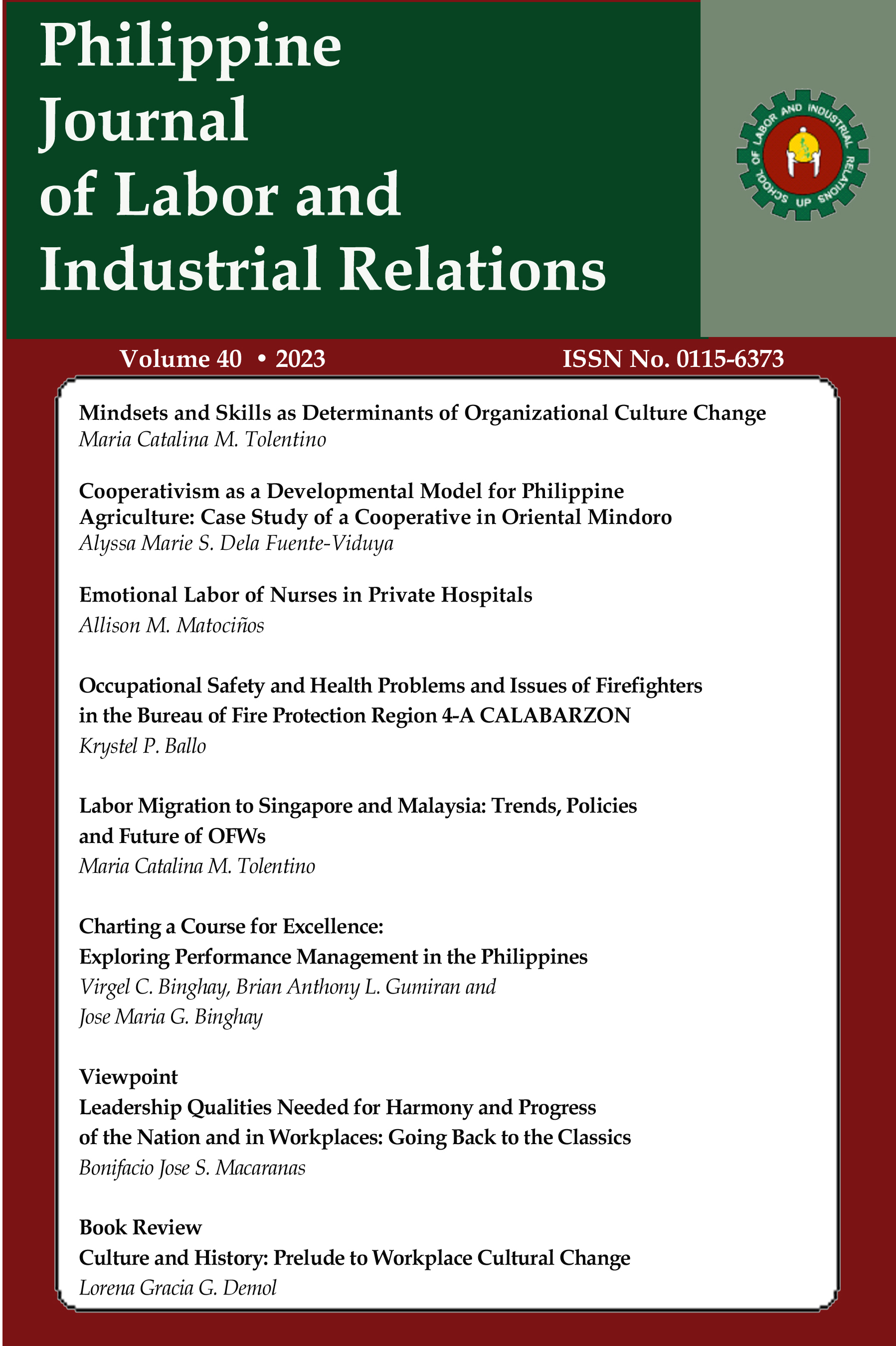Labor Migration to Singapore and Malaysia: Trends, Policies and Future of OFWs
Abstract
This paper discusses the outbound flow and conditions of overseas Filipino workers (OFWs) in two states: Singapore and Malaysia. It discusses labor migration policies in the Philippines, in countries of deployment, and in the Association of Southeast Asian Nations (ASEAN). As a sending country, the Philippines promulgated policies and programs to protect the welfare of overseas workers who contribute to the economic growth of countries of deployment. Singapore and Malaysia have policies that are protective of their own labor market and their economies. In regional and international conventions, Philippines, Malaysia, and Singapore are signatories to important documents, particularly the ASEAN Consensus on Declaration on the Protection and Promotion of the Rights of Migrant Workers. Protection refers to forms of assistance to victims of illegal recruitment, wrongful accusations, human trafficking, and proper repatriation of victims of crisis situations, such as wars and diseases. The foregoing issues have had impacts on Filipino overseas employment during the pandemic and even beyond the pandemic. Although economic conditions in Singapore and Malaysia are on recovery, Filipinos should not pin their hopes on overseas employment in Singapore and Malaysia due to increasingly stringent and changing labor migration policies in the said countries.


